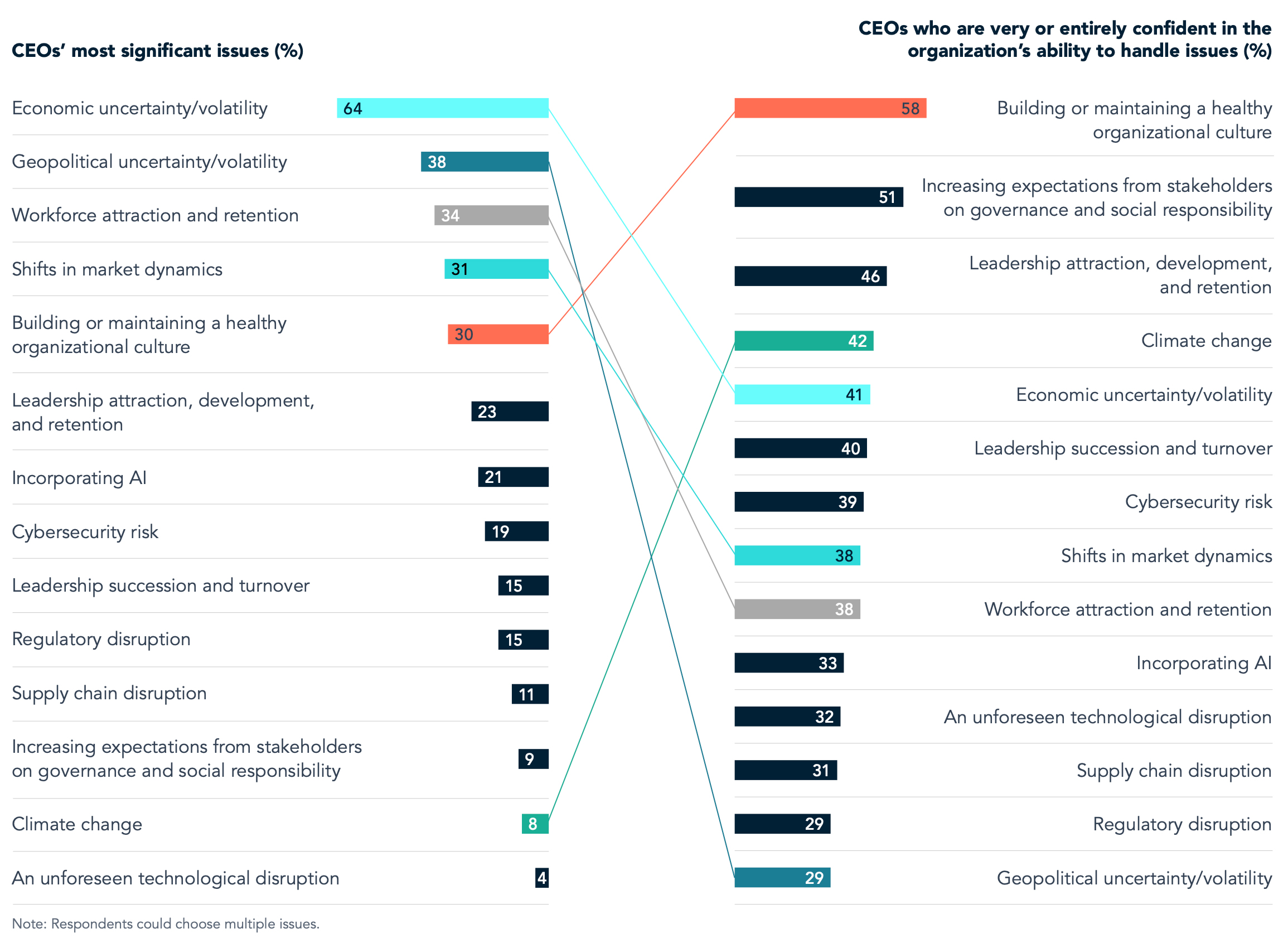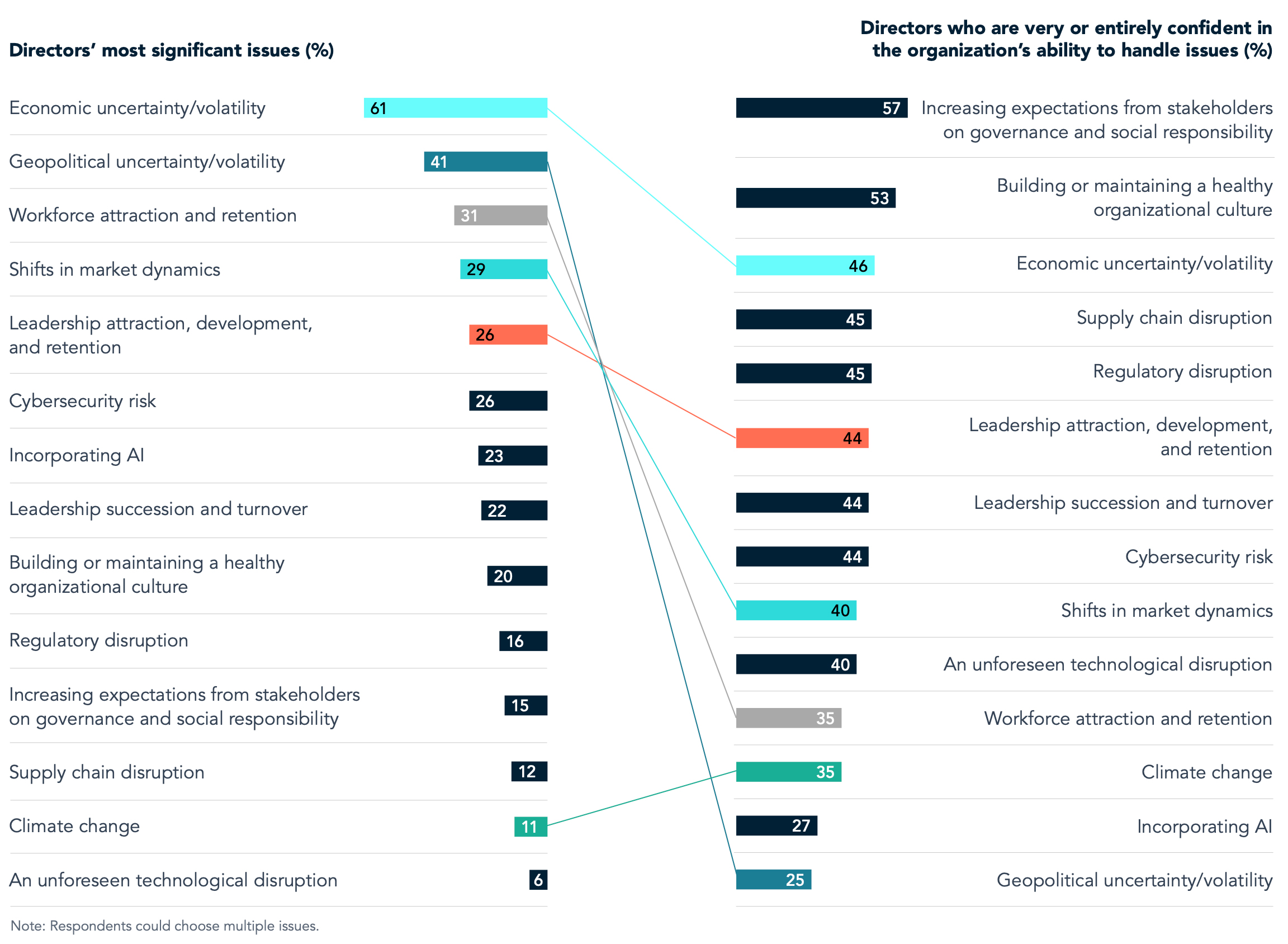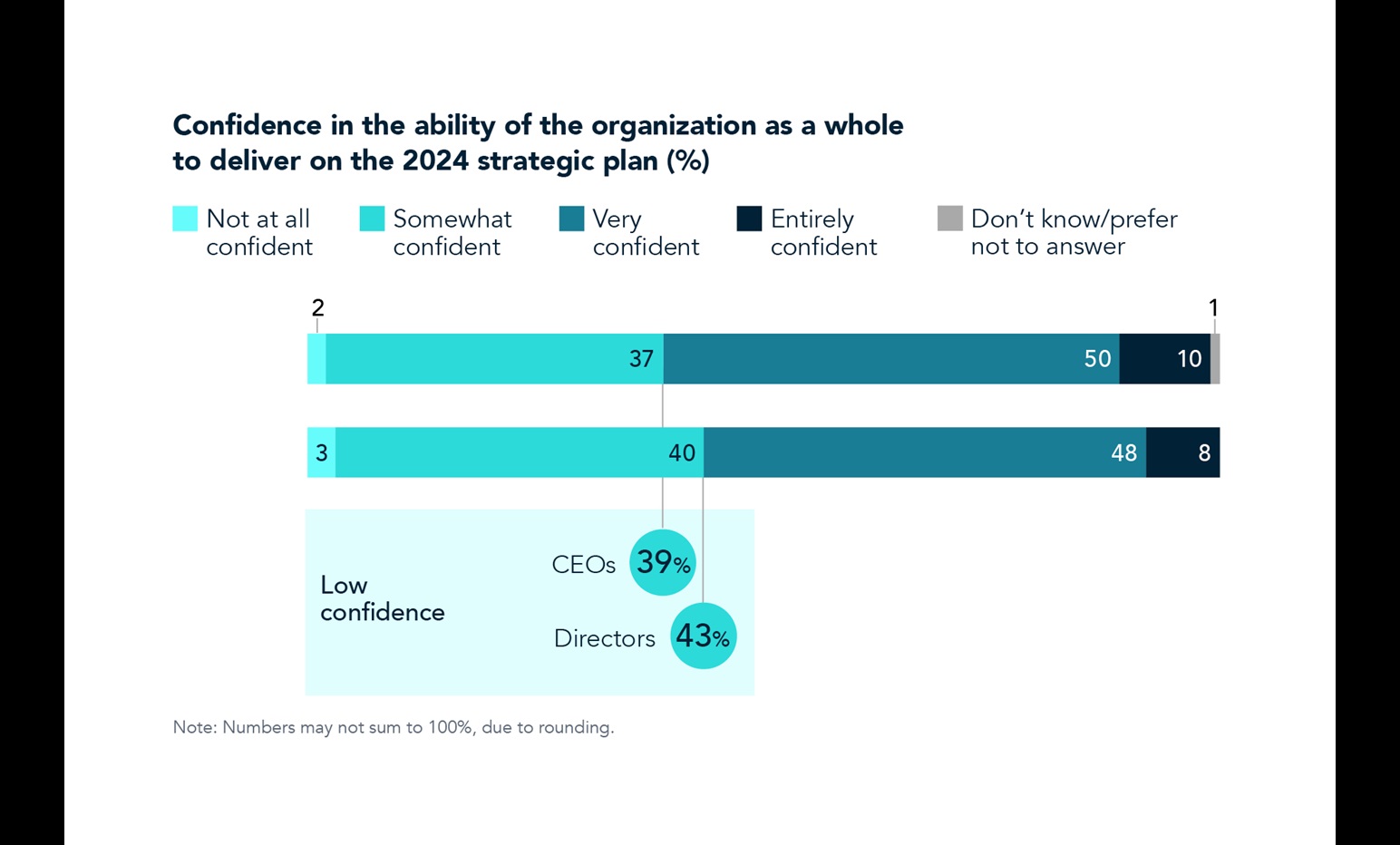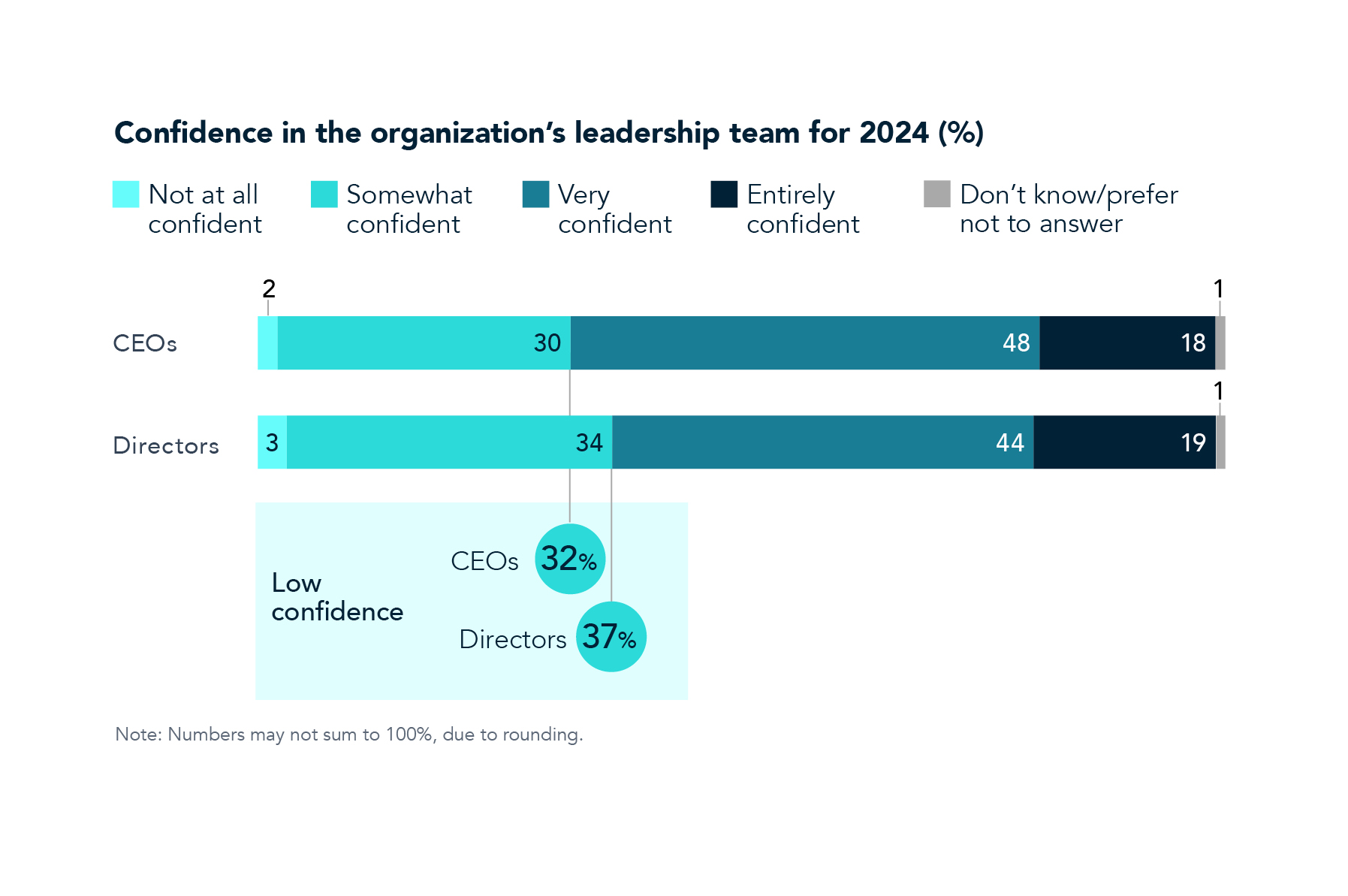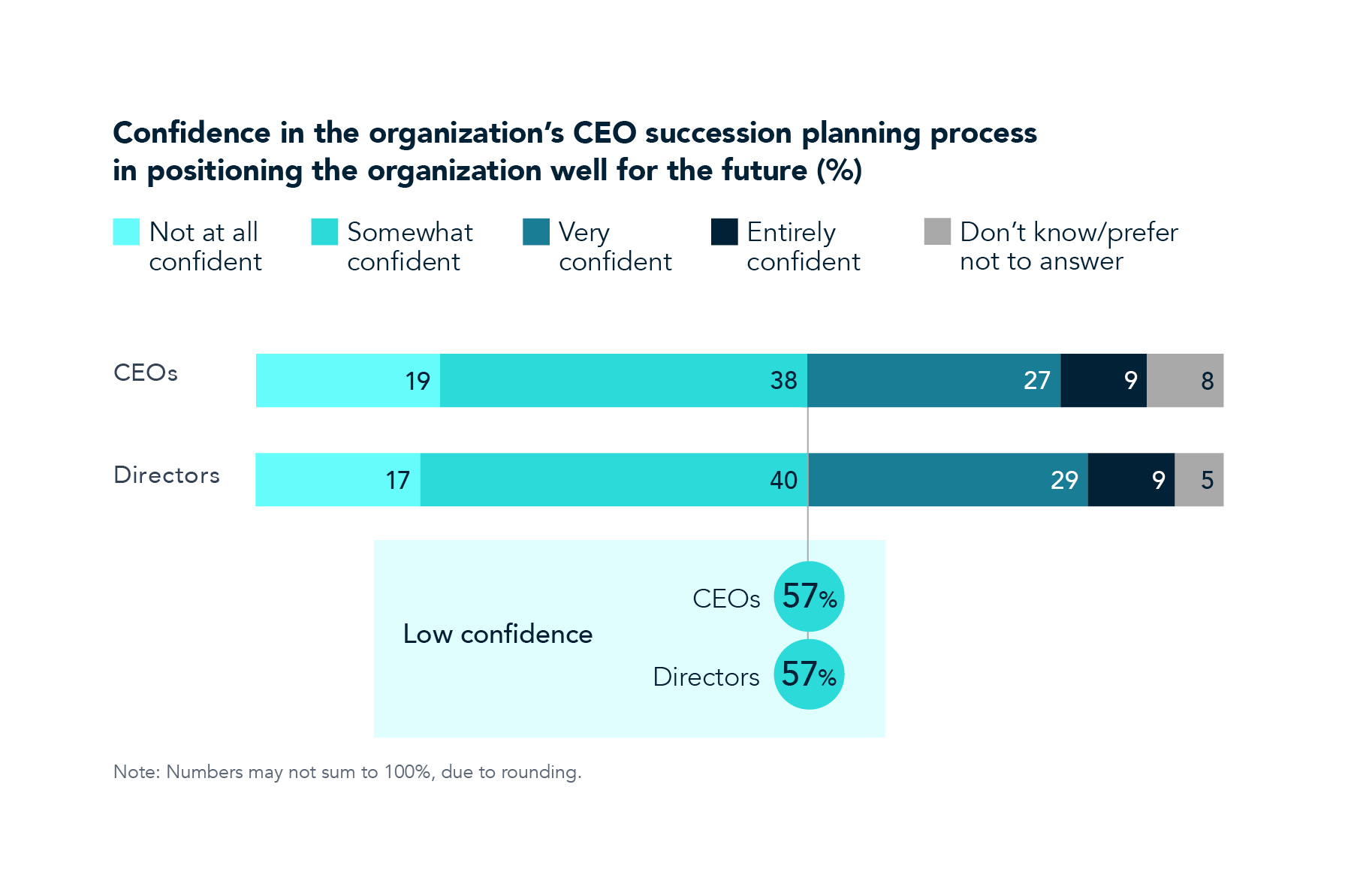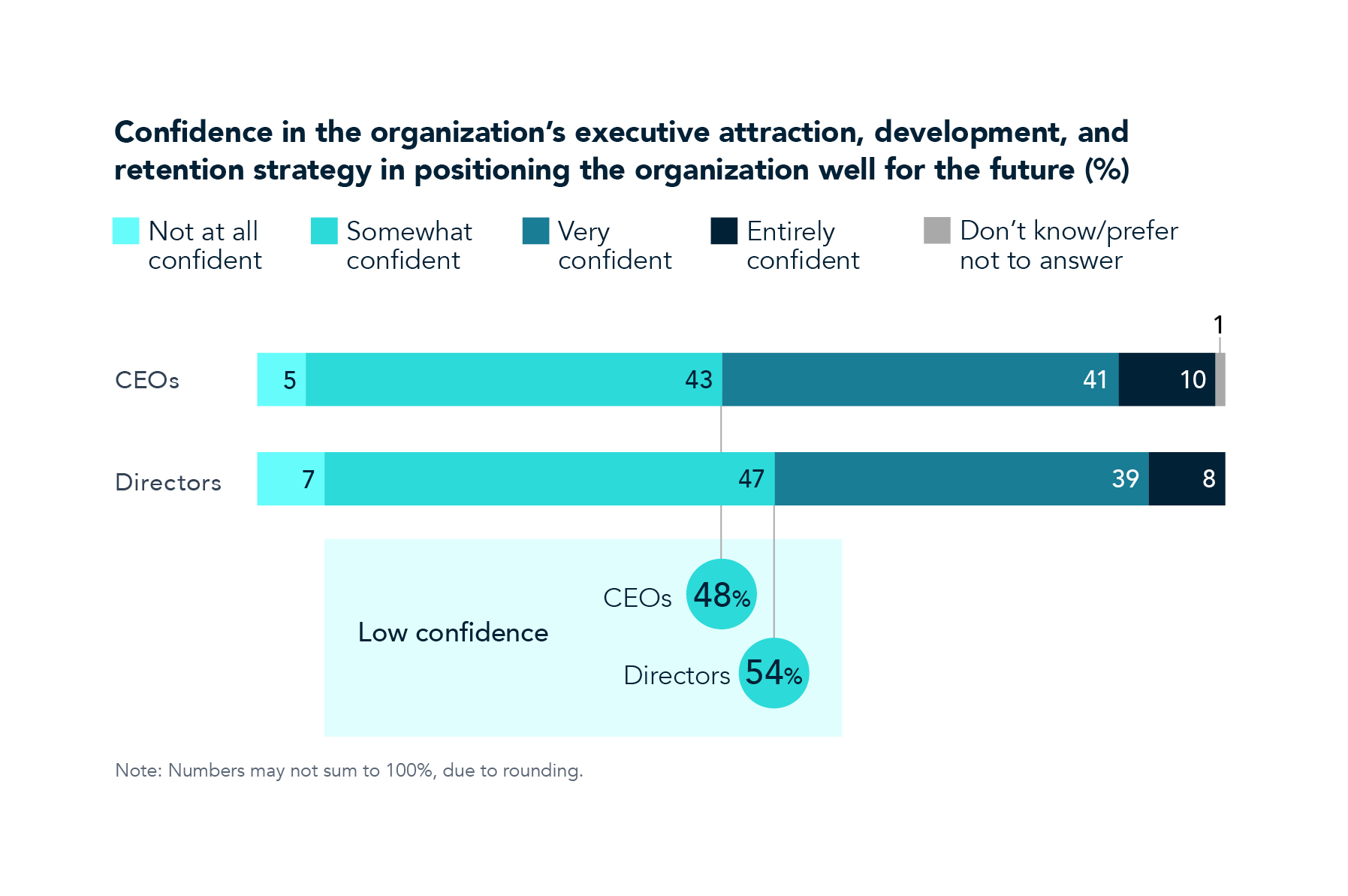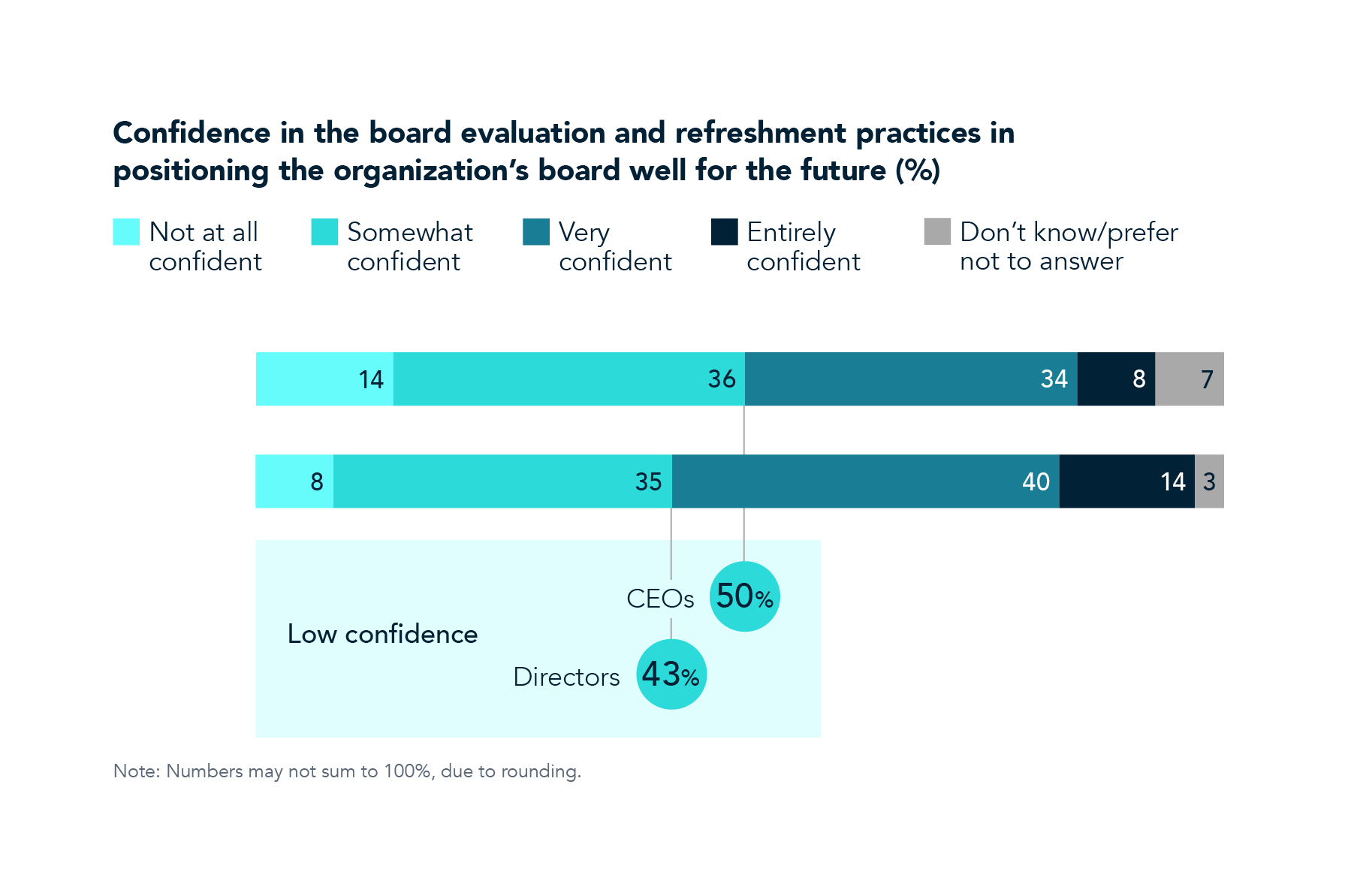CEO & Board of Directors
CEO and board confidence monitor: A worried start to 2024
A recent survey of CEOs and board members at companies around the world highlights that external factors, such as economic and geopolitical instability, are leading to low leadership confidence in the organization’s ability to meet 2024 goals, as well as low confidence in their longer-term succession and leadership planning.
Little confidence that organizations can manage what matters most
CEOs and board members are mostly aligned on which issues will be most significant in 2024. But both groups have little confidence their organizations can manage most of those issues.
- Among CEOs, there is only one issue in their top 5 that more than half are confident the organization can manage: culture.
- Among board members, there are no issues in their top 5 that more than half are confident the organization can manage.
- Given the events of the past year, it’s hardly surprising that geopolitical volatility sits near the top of concerns and at the bottom of manageability. Our inability, as leaders and as people, to work across geopolitical divides, and the growth of divisiveness overall, stand in the way of progress on most important issues.
- CEOs’ relatively high confidence in their organizations’ ability to manage culture may be because 83% of companies are currently working on their culture.1
- It’s notable that climate change, an issue that many people see as pressing for the world and crucial for companies to address, is seen by relatively few CEOs and board members as significant for 2024—and when it is, it’s one that CEOs, in particular, are less concerned about addressing than most other issues. This may be because most companies have taken concrete steps to address aspects of this, such as their carbon footprints.
More confidence in the leadership team than in the organization’s ability to meet 2024 strategic goals
- Given leaders’ general lack of confidence in managing the most significant issues, the fact that large shares of both CEOs and board members aren’t particularly confident in the organization’s ability to deliver on its 2024 strategic plan seems realistic, as even the best teams will be challenged amid such a highly uncertain environment.
- That being said, regarding the leadership teams, there is somewhat better news: slightly higher shares of both CEOs and board members have confidence in the current leadership team.
More than half are concerned about next-generation executive leadership
- Looking ahead, more than half of CEOs and of board members—57% in each group—are not at all confident, or only somewhat confident, that their CEO succession planning process is positioning the organization well for the future.2
- Roughly half of CEOs and of board members are confident in their organization’s overall executive attraction, development, and retention strategy.
- Both board members and CEOs are more confident in the board succession process than in the CEO succession process, though to varying degrees.
Considerations for 2024
- Developing new leadership muscle: Going into 2024, directors and CEOs are wrestling to understand the boundaries of their own purpose and role, and the responsibility of business itself in the world. So, it is not surprising that the leaders who responded to this survey are most concerned about economic and geopolitical uncertainty, and least confident in their ability to address both. Shareholders, employees, customers—even governments—are demanding more access to and influence over corporate governance and decision-making. Divisiveness and polarization within these groups complicate the picture. Leading and governing across the boundaries that divide us—both within organizations and in the communities they serve—is proving to be the most important skill directors and CEOs are building right now.
- Progress on issues such as climate change, wealth inequality, and business strategy itself will require this skill more than ever before.
- The issues that matter most will certainly change over time, but we expect the ability to lead and govern across boundaries to lie at the core of effective leadership for the foreseeable future.
- Increasing investment in succession planning: Uncertainty and higher expectations are driving a growing trend toward continuous, longer-term succession planning at both the board and CEO levels. We expect that trend to continue, and, we hope, will over time address the confidence gap our survey results show in how effective that planning is today.
About the research
In November 2023, Heidrick & Struggles fielded an online survey that garnered 3,156 respondents. Of those, 2,320 respondents were CEOs and 836 were directors. Forty-one percent were in Europe; 38% in North America; 10% in Asia Pacific; 4% in each of Latin America and the Middle East; and 2% in Africa. Respondents represented companies of all sizes; 23% reported annual revenue of $1 billion or more. Companies ranged across all industries.
References
1 To learn more about CEOs’ views on culture, including how it is linked to improved financial performance and retention, see "Aligning culture with the bottom line: Putting people first," Heidrick & Struggles.
2 This is an even lower level of confidence than we found when we surveyed US board members only early in 2023.
